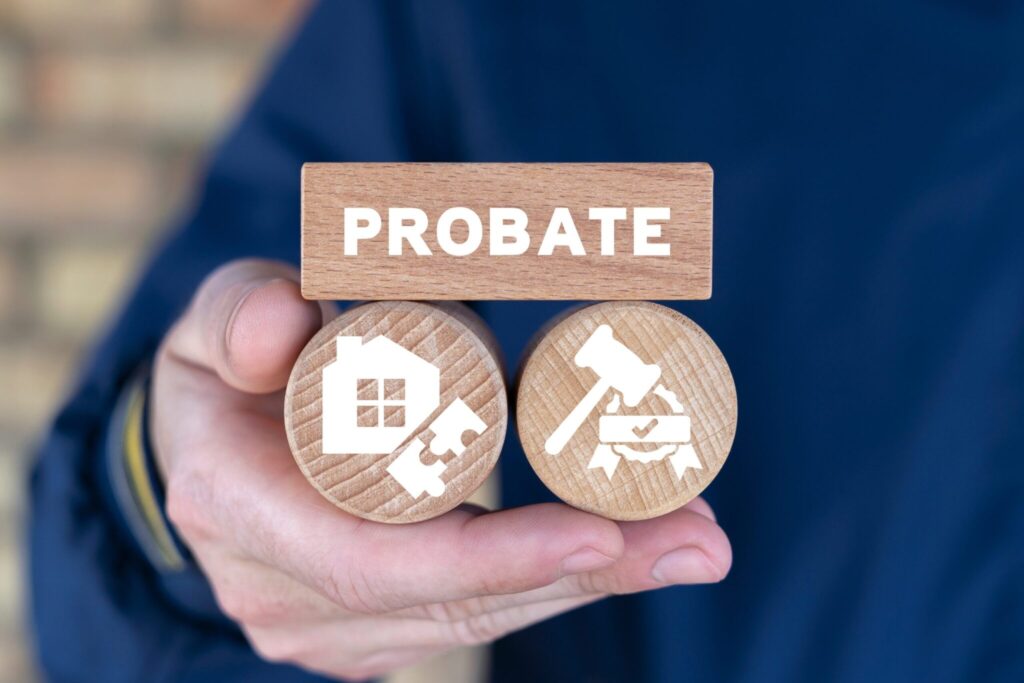Texas probate law presents many complexities, and joint tenancy real estate adds even more confusion. Many Texas property owners hold real estate jointly with another person, often a spouse, through a form of ownership known as joint tenancy. While this arrangement offers some advantages, it also raises specific challenges, especially when one of the co-owners passes away.
If you’ve found yourself in the position of dealing with joint tenancy property after the death of one of the tenants, it’s important to understand how probate law affects this type of property ownership. This guide will walk you through the ins and outs of handling probate for joint tenancy real estate in Texas, providing you with the knowledge needed to manage the process effectively.
What is Joint Tenancy?

Joint tenancy is a legal way for two or more people to co-own property, where each person holds an equal share. The defining feature of joint tenancy is the right of survivorship, which means that when one joint tenant dies, their share of the property automatically passes to the surviving tenant(s) without going through probate.
This arrangement can be particularly beneficial for married couples who want to ensure that the surviving spouse automatically inherits the entire property without the hassle of probate. Joint tenancy applies not only to spouses but also to any co-owners, such as friends, business partners, or family members.
Joint Tenancy vs. Tenancy in Common
Before diving deeper into how probate affects joint tenancy, it’s essential to distinguish between joint tenancy and tenancy in common, two common forms of co-ownership in Texas.
- Joint Tenancy: As mentioned, this form of ownership includes the right of survivorship, which means the deceased owner’s interest passes directly to the surviving owner(s) without the need for probate.
- Tenancy in Common: With this arrangement, each owner holds a percentage interest in the property, which can be unequal. When one owner dies, their interest transfers to the heirs according to their will or through intestacy laws if no will exists, and the probate process may be necessary to complete the transfer.
Understanding the distinction between these two types of co-ownership is crucial when determining whether probate is necessary after a co-owner’s death.
Probate and Joint Tenancy: Is Probate Required?
In joint tenancy, the right of survivorship typically allows the transfer of the deceased owner’s interest in the property without needing probate. However, this is not always a cut-and-dry situation. Let’s explore some of the nuances that could affect whether probate is necessary.
Right of Survivorship in Joint Tenancy
If the property is held in joint tenancy with the right of survivorship, the surviving co-owner(s) automatically inherit the deceased owner’s share. For instance, if a married couple owns their home as joint tenants and one spouse dies, the surviving spouse becomes the sole owner of the property without going through probate.
However, there are a few conditions to be aware of:
- Properly Executed Documents: The joint tenancy must be properly established in the deed or other relevant documents, and the right of survivorship must be explicitly stated. If the right of survivorship is not included, the property may be treated as a tenancy in common, which does require probate.
- Filing an Affidavit of Survivorship: In many cases, the surviving joint tenant must file an affidavit of survivorship with the county where the property is located. This document serves as proof that the surviving owner is now the sole owner of the property. The affidavit must be accompanied by a certified copy of the deceased co-owner’s death certificate.

While joint tenancy can simplify the transfer of real estate upon death, it’s important to ensure that all legal documents are in order and properly executed. Otherwise, complications can arise, and probate may become necessary.
When Probate May Be Necessary for Joint Tenancy Property
Even in cases of joint tenancy, probate may still be required under certain circumstances. Here are a few situations where the property might need to go through probate despite the right of survivorship:
- Title Issues or Disputes: If the title to the property is unclear or disputed, probate may be necessary to resolve ownership matters. For instance, if the deed is not clear about whether the property was held as joint tenants or tenants in common, the courts may need to intervene.
- Death of All Joint Tenants: If all joint tenants pass away simultaneously (for example, in a car accident), probate will be necessary to transfer the property to the heirs.
- Debts and Liabilities of the Deceased: Although joint tenancy avoids probate for the property itself, the deceased owner’s estate might still need to go through probate to settle debts and liabilities. Creditors may have a claim on the decedent’s estate, which could affect the real estate in question.
- Improvements or Alterations to the Property: If the deceased owner failed to document improvements or significant changes to the property, the probate process ensures a clear transfer of ownership.
- Disputes Among Heirs: When the heirs of a deceased joint tenant contest the property’s ownership, the probate court steps in to settle the dispute.
Steps for Handling Probate of Joint Tenancy Property
If probate is required or you’re unsure how to proceed, it’s crucial to take the right steps to handle the process efficiently. Here’s a step-by-step guide to help you through probate for joint tenancy property in Texas.
Step 1: Determine Ownership Structure
First, review the property deed and confirm whether the owners held the property as joint tenants with the right of survivorship or as tenants in common. This will dictate whether probate is necessary.
- Joint Tenancy with Right of Survivorship: In this case, you don’t need probate. Instead, you must file an affidavit of survivorship with the county clerk to document the transfer of ownership.
- Tenancy in Common: If the property is held as tenants in common, the deceased owner’s share requires probate to transfer it to their heirs.
Step 2: File the Affidavit of Survivorship
For joint tenancy property, the surviving co-owner should file an affidavit of survivorship along with a certified copy of the death certificate. This step ensures that the public records reflect the new ownership status and helps avoid future title disputes.
Step 3: Open Probate for Other Assets
Even if the real estate does not go through probate, other assets of the deceased owner might. This could include bank accounts, vehicles, and personal belongings. You must initiate the probate process for these assets in the county where the deceased resided.
Step 4: Pay Debts and Taxes
The estate must settle any debts or taxes owed by the deceased owner before it can fully distribute to the heirs. This is a crucial part of the probate process, as creditors may seek to place a claim on the estate, including any jointly owned property.
Step 5: Resolve Disputes
Disputes among heirs or between creditors and the estate can complicate the probate process. If a dispute arises regarding the ownership of the property or the distribution of other assets, it’s best to seek the advice of a probate attorney. The court may need to step in to settle any contested issues.

Step 6: Finalize the Transfer of Property
After settling all debts, resolving disputes, and filing the proper documentation, you can finalize the transfer of ownership. If probate was necessary, the court will issue an order that transfers the deceased owner’s share of the property to the appropriate heirs.
Avoiding Probate for Joint Tenancy Property
If you want to avoid probate altogether when it comes to joint tenancy property, there are a few proactive steps you can take:
- Ensure Clear Title: Make sure the property is clearly titled as joint tenancy with the right of survivorship in all relevant documents. This prevents unnecessary confusion or probate proceedings down the line.
- Use a Living Trust: Another way to avoid probate is to place the property in a living trust. A trust transfers the property to the beneficiaries according to its terms, bypassing probate.
- Update Legal Documents Regularly: Life changes, and so do relationships. It’s essential to update wills, trusts, and other legal documents regularly to reflect current wishes and ownership arrangements.
Conclusion: Navigating Probate for Joint Tenancy in Texas
When you properly establish the right of survivorship, handling probate for joint tenancy real estate in Texas becomes straightforward. However, probate may still be necessary in certain situations, particularly when disputes arise or debts require settlement. By understanding the legal nuances of joint tenancy and taking proactive steps to keep legal documents in order, you can ensure a smooth transfer of property and avoid unnecessary probate complications.
It’s always a good idea to consult a knowledgeable probate attorney who will help you navigate the process and ensure proper handling of everything. Whether you’re the surviving co-owner or an heir to a deceased co-tenant’s estate, having legal guidance will give you peace of mind and protect your interests.








